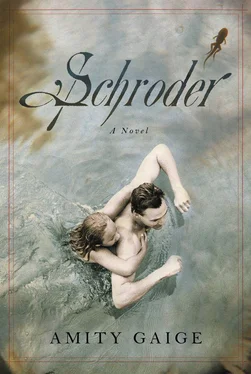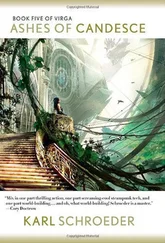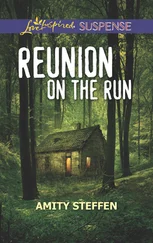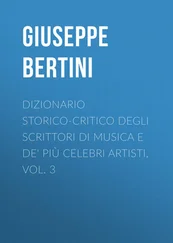“Peggy Sue!”
“Peggy Sue’s probably dead, for Christ’s sakes. They wrote her song in the fifties, John. Where’ve you been?”
“Were those women real? I thought they were just made-up songs.”
“Some of them are real. I’m real, aren’t I? I thought it would make a good reality TV show, you know, to trace the girls through their lives and see what happened to them. And how the song shaped their lives.”
“And? What happened to your idea?”
“Well, let’s say there was a certain amount of skepticism. Subterfuge. Jealousy. Agents intervened. The girls themselves, they took it took too personally. I don’t think they ever understood what they were.”
I looked at her with amusement.
“They were muses . There was a cause .”
“A cause?”
“Rock and fucking roll was the cause. You, John. At sixteen, in your underpants, playing air guitar in your bedroom. You were the cause. It’s not funny .” April took a sip of her vokka. “Of course, you don’t earn a living as a muse. Nobody writes you a check for it. Do you think the Minor Miracles were going to send me royalties? No. And so. I found jobs like everyone else.”
“Were you at Woodstock?” I grinned.
“How old do you think I am, you piece of shit? No. But I did Burning Man once or twice. All I got out of that was a snakebite and a yeast infection.”
I laughed and finished my drink, cracking the last ice cube with my back molar.
When I looked over at her, she was staring at me, stirring her drink with her finger.
“So,” she said. “Later, after milk and cookies, I hope you come back and see me, John.” She smiled at me over the rim of the glass. “I hope you knock on the door. And say my name. I’ll wait up for you. I’ll wait up for you, and I’ll think about you. And then you’ll knock on the door and say my name. And we’ll see what happens. Maybe something nice.”
“Sounds good,” I said.
She laughed ruefully. “Oh, John Toronto, you are one strange man.”
It was late before we had finished our steaks and cleaned up as best we could with only the use of bathroom sinks and bug lights. Meadow was delaying bedtime with some questionable frog care. I watched her in the iodine yellow light, squatting over the bucket, talking to it. Finally I wrangled her into her nightgown and tucked her into her bed.
“April’s going to teach me how to change my hair,” she said.
“What’s wrong with your hair?” I said, smoothing it down at the top of her head.
“I want it to look like hers. Yellow.”
“Oh. Really?”
“She gave me the bottle for it. The yellow comes in a bottle.”
“No, I like yours how it is,” I said. But I wasn’t really listening. I was starting to experience a certain notorious foregleam, whetted by the short distance between my and April’s cabins. I slid off the creaky bedsprings and gave Meadow a peck. “Good night, then, sweets.”
She clicked on her flashlight. “Where are you going, Daddy?”
“Right over there. To talk to April. Could you not shine that in my face, please? I don’t like lights in my face.”
“Can you read me one more poem from Birds Come and Gone ?”
“No. It’s late. The birds came and went. Close your eyes, and before you know it, it will be morning.”
“Can I come with you?”
“Not on your life.”
“When will you be back?”
“Soon. Or, as you would say, soon ish .”
“I’m afraid to sleep alone.”
“You won’t sleep alone. Like I said, I’ll be back really soon.”
“Just one more poem?”
“Meadow—”
“Can you at least stand outside the door until I fall asleep?”
“OK. OK. I’ll be right outside. Now, go to sleep.”
Except for the light in April’s cabin, the night was completely dark. The lamplight spilled across the short distance and exposed me to the night. One movement and April would be able to see me from under the hem of her lacy window treatment. I cleared my throat. The lake lapped against the little beach, unseen, darker than the sky. I leaned against a tree with large, bald roots, kicking the dirt that formed a little collar around the barbecue. I could hear Meadow talking to herself, the beam of her flashlight roving the ceiling of the cabin. After a couple of extremely long minutes, the beam settled and I could hear only the lake. Three, four, five paces later, I’d crossed a realm.
April opened the door and stood behind the screen, a drink in one hand and a rolled-up celebrity magazine in the other. She pushed the screen door open with it.
“You’re supposed to wait for me to knock,” I said.
“I couldn’t stand the suspense.”
“I was hoping to get your autograph.”
April beamed. “I’ll do you one better.”
The headboard was cheap and loud and her legs were very long and she was strong and tawdry and enthusiastic and neither of us was very clean or polite and it occurred to me it had been a long, long, long time since I’d made love like that, I mean without apprehension, without bracing myself for some kind of fallout. It had been a long time since I’d visited that vast, unregulated sexual territory between two willing people — no hazards, no rattlesnakes, no treachery. But I remembered it. There is even a photograph of it. A Delaware Bay motel en route to Albany from Virginia Beach. We didn’t have a camera, so we bought a disposable one in the motel lobby, along with a package of pistachios and a liter of root beer. In the shower, we stood cleaning the highway off one another. I found black grit in the corners of your eyes, and inside the carpet of your hair. I shampooed you brutishly, a real amateur; you just laughed. The sun gives us a day, but who fashioned the hour? What is supposed to be accomplished within its parameters? How long is an hour supposed to feel ? That hour — the one in which we lay on the bed afterward, staring at each other in the underwater light particular to roadside motel rooms — that hour seems to still be taking place endlessly, and it is a kind of invigorating torture to me, and I can’t get rid of it.
How did you get rid of it?
“Why are you crying, hon?” April was saying now. “Don’t cry. Come on, John. That makes me feel like shit.”
“I’m sorry,” I said, wiping my face. “I’m sorry. You’re gorgeous. You’re good. I like you. It’s just — It’s been a long time since I felt so”—I searched for the word—“acceptable.”
“All right. Sure. That’s all right.”
“You make me feel acceptable. Do you know what I mean?”
“Not really. I just make love because I like to do it.”
“Well, that’s good. Good for you. I’m just a lot sadder than I appear. Ergo the random outbursts—” Here I leaned over her naked body for a deep drink of vodka from the bedside table.
“Come here,” April said, pulling me to her by the neck, and I lay across her like that, crying and apologizing, and topping off our drink and listening to her talk until everything smoothed out and made a sort of sense, and that was me falling asleep. My dreams were only mildly disturbed as the body beside me stirred and resettled and the night labored on and I pretty much forgot I had a daughter and more importantly I believed she had forgotten about me.
I didn’t wake up until the morning, when dim light fell across my face.
Disoriented, I looked up. There was my daughter in the doorway, staring at me, her hair scorched white.

It occurs to me that I haven’t really mentioned my research here in the body of my text. I don’t want to burden the prospective listener with subjects too esoteric, but on the other hand, it seems that my not mentioning my research belies some form of embarrassment? And given that I woke up today regretting yesterday’s confessions (see here, re: Delaware Bay) and am now practically impaired with bitterness that a) I felt such tender things about you, Laura, in the first place and b) I then immortalized them by writing them down, I think now would be a good time to change the subject. Let’s not forget that my audience here is diverse. I’ve got a legal obligation to humanize myself. For my own defense. Other people might want to know, how did I contribute to society? What did I care about?
Читать дальше













